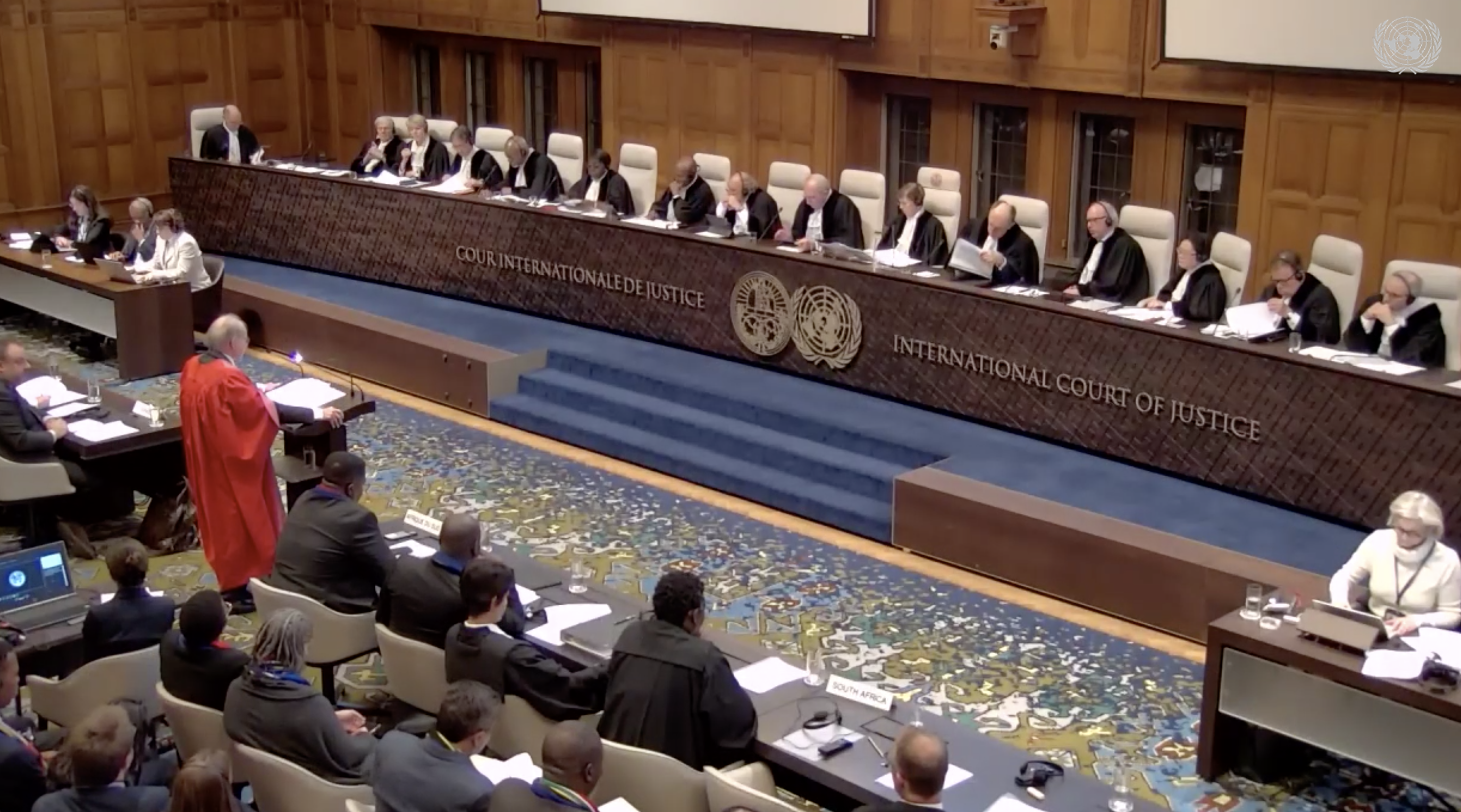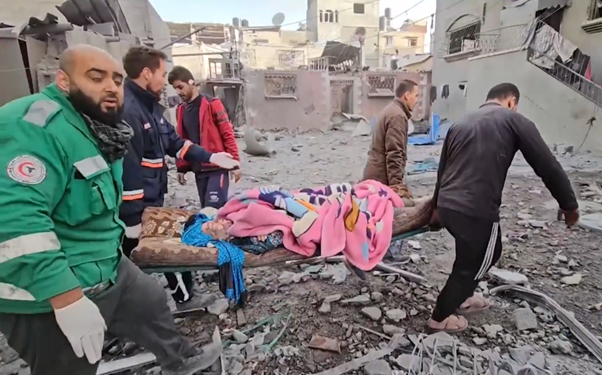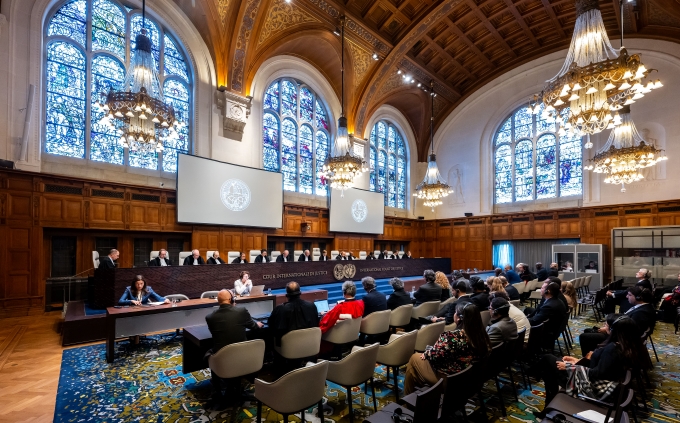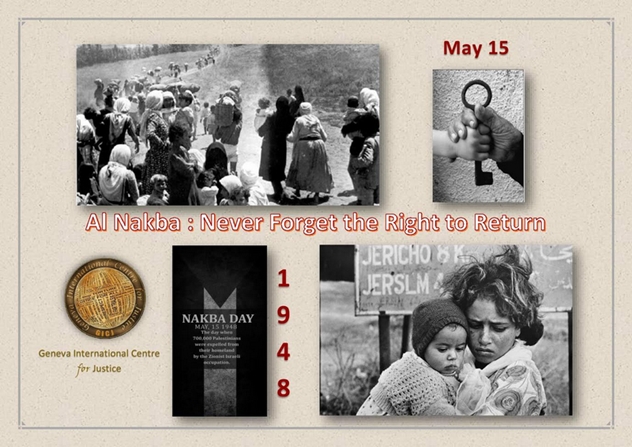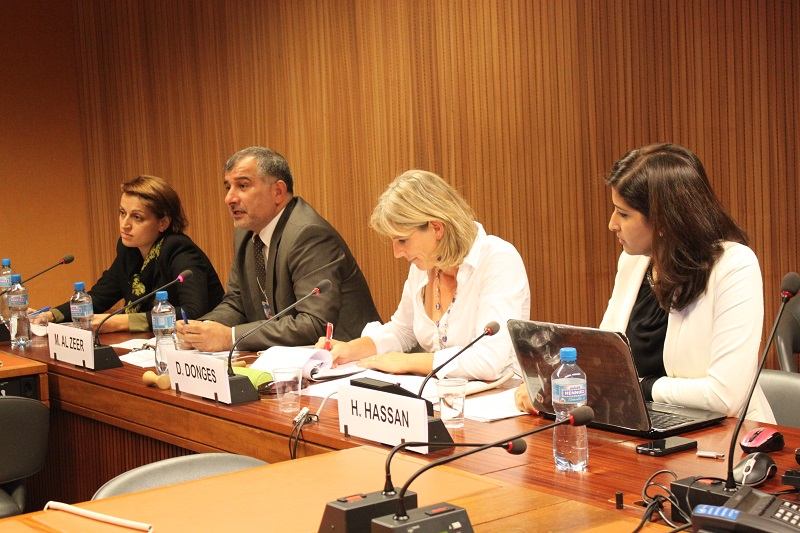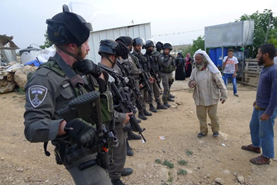What provisional measures in Israel genocide case does South Africa seek from The Hague?

On 11 January 2024, the International Court of Justice (ICJ) hosted its first day of proceedings to adjudicate South Africa’s lawsuit against Israel, which claimed that latter has violated its obligations under the 1948 Convention on the Prevention and Punishment of the Crime of Genocide (‘Genocide Convention’ or ‘Convention’). South Africa was represented by a team of several jurists who presented the country’s case, including Vaughan Lowe, a leading British barrister and Professor of Public International Law at the University of Oxford.
Prof. Lowe’s oral statement primarily addressed the provisional measures sought by South Africa from the Court in relation to Israel’s operations in Gaza. He began by first identifying how the case as argued by his preceding colleagues satisfies the criteria for ordering provisional measures. These are:
- That the Court has prima facie jurisdiction over this matter;
- That there should be a link between the measures requested and the rights underlying the main claim;
- That there is evidence of plausibility of the rights that are claimed, notably, the right not to be killed or physically harmed, and the right not to be physically destroyed.
- That there exists a risk of irreparable prejudice to the situation;
- That the matter is of great urgency.
With these criteria established, Professor Lowe next explained why South Africa requested an order of provisional measures so urgently from the Court. The first reason has to do with the sheer scale of the destruction occurring in Gaza, which he argued only be seen as an attempt to destroy the region and its citizens. This, he claimed, is to unlikely to change, as Israel has publicly asserted that it will continue its military operations. The scale of the ongoing destruction – estimated currently at over 23,000 casualties – has thus compelled South Africa to fulfill its obligations under the Genocide Convention to prevent genocide by petitioning the Court to call an immediate end to the violence. The second reason concerns South Africa’s belief that the Court needs to issue orders to safeguard the integrity of its proceedings and the final efficacy of its ruling. The ICJ has previously issued similar orders in the case of Bosnia, where it had ordered the cessation of actions that contributed to its genocide at the time. Without such non-aggravation orders, Prof. Lowe argued, there is a risk that the respondent will rush to complete its unlawful conduct before the Court’s final ruling, rendering the ruling and the Court irrelevant.
Taking these considerations in mind, South Africa requested nine provisional measures from the Court. Among these are: the order that Israel immediately suspend its military operations in and against Gaza; that South Africa and Israel each fulfill their obligations under the Genocide Convention; and that Israel shall not to kill the Palestinian people, cause serious bodily harm to them, or deliberately inflict conditions calculated to bring about their destruction in whole or in part. South Africa also called on the Court to demand that Israel no longer deprive Palestinians of access to humanitarian resources, and that it cease the expulsion and forced displacement from their homes. To ensure compliance with these requested orders, the lawsuit also seeks that Israel submit specific reports on what it is doing to implement them. As Prof. Lowe claimed, general assurances are not enough. Reports published via the court are an essential element of accountability.
The South African legal team during this first hearing worked extensively to show that Israel had demonstrated, through its actions and statements from its officials, a clear genocidal intent toward the Palestinian people. As his colleagues had explained, South Africa need only prove that the rights for which it seeks protection are “at least plausible” under the Convention. This threshold does not require the Court to determine whether the rights South Africa wishes to see protected exist. They must merely be granted in a possible interpretation of the Convention. According to Prof. Lowe, contrary to Israel’s claim that its war is on Hamas and not the Palestinian people, the country’s military operations suggest an indiscriminate attack of the entire population of Gaza, with no regard to questions of innocence or guilt. Such a state of affairs merits the Court’s imposition of the requested orders. As Lowe would later put it:
“This is not a moment for the Court to sit back and be silent. It is necessary that it assert its authority, and itself order compliance with the obligations under the Genocide Convention. It is hard to think of a case in recent history which has been so important for the future of international law and of this court.”
Read more from GICJ:
|
|
|
|
|
|
GICJ side-event: diaspora and their right of return, where to? |
|




